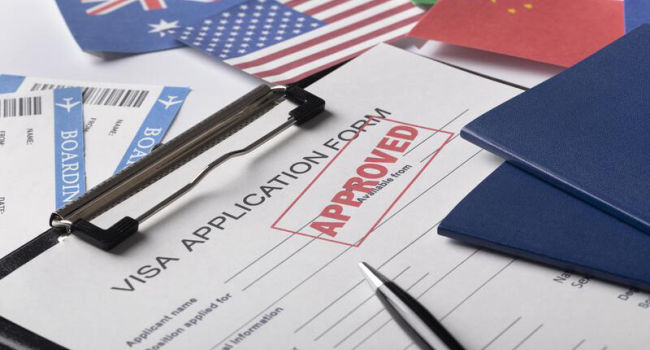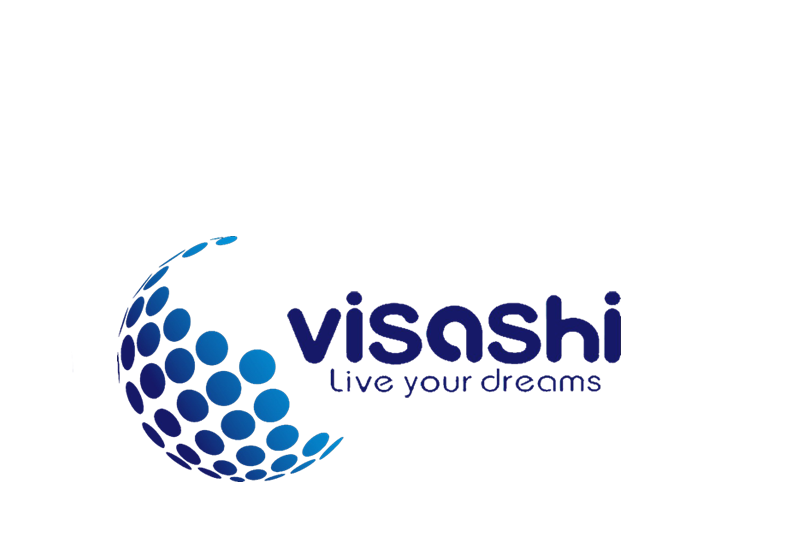سوالات مصاحبه ویزای F-1 آمریکا: هدف از مصاحبه ویزای F1 این است که افسر کنسولی بخواهد در مورد شما به عنوان یک متقاضی اطلاعات بیشتری داشته باشد، جدای از اینکه مدارک در مورد شما چه می گویند و بفهمد که آیا می خواهید برای تحصیل واقعی وارد ایالات متحده شوید یا موارد دیگری وجود دارد.
بنابراین، شما باید از قبل برای سوالات مصاحبه ویزای F1 امریکا آماده باشید.
گذشته از رسیدن به موقع، تلاش برای عصبی نبودن و پوشیدن لباس مناسب، باید سوالات متداول مصاحبه ویزای F1 امریکا را نیز بررسی کنید و سعی کنید قبل از مصاحبه ویزای F1 امریکا پاسخ آنها را آماده کنید.
چگونه برای ویزای J-1 اقدام کنیم؟
پردرآمدترین و کمدرآمدترین مدرک کارشناسی در آمریکا
سوالات مصاحبه ویزای F-1 آمریکا: در اینجا لیستی از سوالات مصاحبه ویزای F-1 در مورد برنامه های تحصیلی شما در ایالات متحده آمده است.
Q: Why do you want to study in the US?
Tip: Tell your interviewer what convinced you to study in the US. For example, you could focus on how the US is the most popular destination for higher education among international students and has some of the world’s best universities. US universities also offer support for international students, a flexible education system, cultural diversity, top-ranked programs, and more. You could discuss how international students like you come to the US to connect with students from around the world in a welcoming community, and in the US you can improve your English language skills.
You can also highlight special circumstances, like the degree you wanted to pursue is not available in your home country.
Q: Why can’t you continue your education in your home country?
Tip: With this visa interview question, you can discuss the difference in the quality of education in your country and the US. As the US has a large number of top-ranked universities, you could tell the interviewer that receiving a degree from a world-class institution in the US is one of your goals. If applicable, you could also talk about how the area of study you want to major in is not available in your home country. Additionally, you could go over the differences in course structure, facilities, and faculty between universities in your home country and the US.
Q: What are you planning to study?
Tip: Tell your interviewer about the area of study you want to major in. For example, if you want to major in computer science, you can discuss how you want to make an impact in industries like health care and education through technology. If you want to major in business, go over how business degree programs are versatile and offer high-paying career possibilities. By confidently answering US F-1 visa interview questions, you can prove that you are a legitimate international student who wants to study in the US!
Q: Have you been to the United States before?
Tip: If you have been to the US, tell the visa officer the reasons behind your previous trips, such as a vacation, to attend a training program, or for medical reasons. If you have not been to the US before, simply say that you have not yet had an opportunity to travel or study there.
Q: Why did you choose this university?
Tip: In your response, show the interviewer that you have researched the university well and explain why it is the best choice to study your major. You should be able to tell how you will benefit from the ranking of the university, faculty, programs, student organizations, alumni network, and more. For example, if notable figures are alumni of the university you plan to attend, you can highlight them.
Q: How many different universities did you apply to?
Tip: You may or may not have been accepted by all the universities you applied to. Make sure to be straightforward and give honest answers to your visa officer. For example, if you received an acceptance letter from only one of the six US universities you applied to, tell the truth. The visa officer will appreciate your honesty.
Q: Where is your school located?
Tip: You could simply answer by mentioning the city or town where the institution is located. If you wish, you can also briefly mention a fact or two about the location. For example, if the college or the university you are planning to attend is located in Dayton, Ohio, you could say, it is known as the “Birthplace of Aviation,” or if you want to attend a university in Chicago, you can mention it offers countless cultural attractions and has many Fortune 500 companies. This will show the interviewer that you have done your research!
Q: What are your test scores?
Tip: Share the scores you obtained for each test you took, including English language tests like Test of English as a Foreign Language (TOEFL) and International English Language Testing System exam (IELTS), as well as any standardized tests you have taken (e.g., GRE, GMAT, and ACT and SAT).
Q: How well can you speak English?
Tip: TOEFL and IELTS demonstrate your ability to speak, write, read, and understand the English language. Although your application has already been accepted by the university you wish to attend, you can mention your TOEFL and IELTS scores to the interviewer to show your dedication and commitment to building your English-speaking skills. Tell the visa officer that you look forward to improving your English-speaking skills further by being part of an international community in the US.
Q: Can you share your high school transcripts?
Tip: You should have all important paperwork ready and available at your visa interview, including your high school transcripts, passport, DS-160 confirmation page, F-1 visa application payment receipt, a copy of your visa photo (make sure your visa photo meets all requirements), and I-20 from the college or university where you have been accepted. So, when your interviewer asks for a particular document, you can then simply hand it over.
Q: How are you planning to finance your education?
Tip: Go over how much your tuition and fees cost, and how you plan to cover these expenses while you are enrolled at your US university. Remember, do not mention how much you will be able to earn in the US! Instead, tell the visa officer that earning a degree from a US college or university will increase the chances of landing a high-paying job in your home country.
Q: Who is sponsoring you?
Tip: If you have obtained a scholarship to study in the US, share this with the interviewer and include all relevant details. If your parents are your sponsors, make sure to mention their names; if someone else is sponsoring you, mention their name and your relationship (e.g., “My uncle, James Lee, is paying for my education.”).
Q. What is the profession of your sponsor?
Tip: The visa officer is expected to understand your sponsor’s finances and if they are truly capable of funding your higher education in the US. Before you attend the interview, make sure to have a good idea about your sponsor’s profession and income sources. When asked, clearly outline the nature of their work and their commitment to paying for your education.
Q: Do you plan on working while you are studying in the US?
Tip: As a student on a F-1 student visa, you will be able to work part time on campus for a maximum of 20 hours per week while your academic term is in session, and work full time during academic breaks. You could tell your interviewer that you wish to focus on your studies and work on campus if you get an opportunity to do so.
Q: Do you plan to return to your home country after completing your studies?
Tip: Make sure to tell the visa officer that you have strong ties to your home country, such as your relationships with your family, partner, close friends, business, and property that you wish to get back to. The visa officer needs to understand that you have strong reasons and motivation to return home after completing your studies.
Q: Do you have family, relatives, or friends in the US?
Tip: Make sure to give an honest answer. If you have any immediate family member or a relative who lives in the US, tell the interviewer about them. If you have friends living in the US, you can mention them, too.
Q: Do you have a job or career in mind post-graduation?
Tip: As an international student on an F-1 visa, you will be entering the US as a non-immigrant. You need to specify to the visa officer that you do not intend to remain in the US after your graduation, and plan to return to your home country to work. Mention what you plan to do after returning home.



